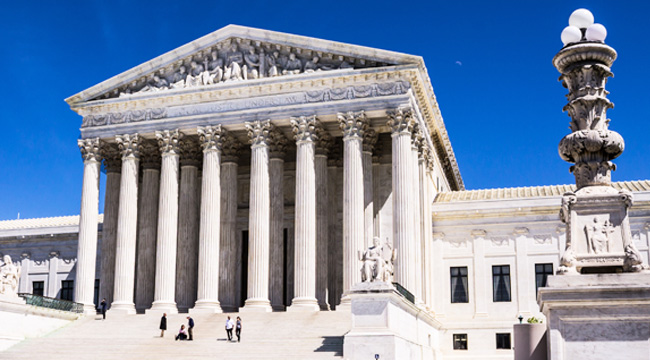
Numerous groups awaited the Supreme Court’s decision about spousal benefits for same sex couples in Texas. It’s a decision that has broad implications not only for legal precedent but also relating to the 2015 decision to legalize same sex marriage. The answer that came was a blow to those who hoped gay couples could retain and uphold “equal dignity in the eyes of the law.” But the Supreme Court’s decision to allow Texas to continue denying spousal benefits leaves the door open for further legal fights down the road.
One obvious consequence of the ruling is that this may embolden conservatives in Texas and other states to try to erode the 2015 legalization of same sex marriage through suits similar to this one. “Today’s abnegation by the nation’s highest court opens the door for an onslaught of challenges to the rights of LGBTQ people at every step,” said Sarah Kate Ellis (via ABC News), President and CEO of the civil rights group GLAAD. She added that the Supreme Court “has just let an alarming ruling by the Texas Supreme Court stand which plainly undercuts the rights of married same-sex couples.”
That said, this isn’t a closed and shut case. The Supreme Court’s decision only allows Texas to continue denying spousal benefits, but doesn’t make a broader call about whether spousal benefits are definitively a part of marriages, whether they be gay or straight. Texas would like to see that decision ultimately left up to individual states, meaning that states with religious freedom laws on the books could deny same sex couples spousal benefits while more liberal and inclusive states could make their own legislation accordingly.
On the other hand, this ruling is a now a significant precedent that could be used to determine the outcome of future battles over spousal benefits. Conservative attorney Jared Woodfell, who was involved in the Texas suit, called the result “a nice early Christmas present.” However, this issue is far from resolved, and it may be one that returns not only to lower courts but to the Supreme Court in a different form at a later date.
(Via ABC News)
